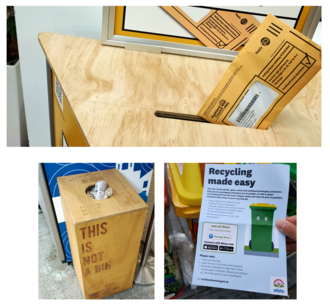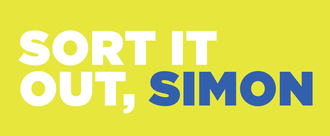-
Amnesty for OverstayersEstimates are that Aotearoa has approximately 14,000 people without any visas or legal status. These are migrants, their whānau and tamariki who have been living in fear during some of the worst challenges we have faced as a country. They are victims of our regressive immigration policies, not criminals. Overstayers deserve to lead a life with dignity and respect. They deserve to be safe and deserve to be helped, especially during hard times like the Northland floods and Cyclone Gabrielle. With the current system, overstayers have hesitated to seek medical help such as covid tests and covid vaccination, for the fear of being reported to authorities and subsequently being deported. And now many of them are flood victims afraid of seeking assistance provided by the government. This is potentially a dangerous and unsafe health situation, not just for the victims but for the entire communities surrounding them. Many of our overstayers are children of parents who do not have lawful status. It is harsh and unfair to punish the children by depriving them of access to needed services such as health care providers, education and safety services. Researchers at UNITEC published an excellent report highlighting the plight of overstayers and their families – the stresses are multi-fold and affect their mental well-being. The solution proposed by researchers is also policy change and legal status for the overstayers. Link to the full report: https://www.unitec.ac.nz/sites/default/files/public/documents/Tuvalu%20project%20report%20-FINAL-13.12.2021.pdf An amnesty for all overstayers regardless of their country of origin is the need of the time.While we appreciate that the Prime Minister is going to look at the petition regarding Pacific overstayers, he needs to be inclusive and act sooner than later. We ask the Prime Minister to give overstayers work rights and their children access to public education, allowing them to lead a life of dignity.1,145 of 2,000 SignaturesCreated by Anu Kaloti
-
Save Auckland CABs!The service provided by Auckland CABs is absolutely essential – something that is even more apparent in times of crisis. With the recent floods and the ongoing challenges of daily life, Auckland CABs are helping people with information and advice and connecting them with the support they need. Last year our dedicated volunteers in Auckland CABs helped more than 160,000 people. Auckland Council is proposing to significantly cut or even remove all funding from CABs in Auckland in its budget for 2023/24. This could result in the complete closure of the CAB service, which has been serving Tāmaki Makaurau for over 50 years. Let Auckland Council know that they should not cut funding to Auckland CABs.22,576 of 25,000 SignaturesCreated by Sacha Green
-
Include the queer community, women and disabled people under hate speech law changesIn 2022, there have been numerous attacks on the queer community. An arsonist burned down the Rainbow Youth drop-in centre in Tauranga. Gloria of Greymouth, a pink queer church, was vandalised with anti-queer and religious symbols. The owner of Woof!, a queer bar in Dunedin, received two anonymous death threats through the bar's social media account and messages from Freedom and Rights Coalition leader and Destiny Church pastor Derek Tait, of Christchurch, including an image of Tait pointing at the bar. Hours after the Labour Party announced that it will exclude the queer community from protection under hate speech laws, a 22-year-old gunman entered Club Q, a queer nightclub in Colorado, and immediately opened fire, killing at least five people and injuring 25 others. In 2017, an Auckland pastor Logan Robertson said he was "not against [gay people] getting married as long as a bullet goes through their head the moment they kiss". That statement will remain legal under the government's changes to hate speech laws. Are we waiting for a mass shooting inspired by homophobia and transphobia to transpire at a New Zealand queer bar before we protect queer people from hate speech that incites violence? How many lives will it take before the government protects us? There is well-documented hatred against queer people to necessitate the protection of queer people under hate speech laws. The government's failure to do so will embolden homophobic and transphobic groups, extremist religious groups, and right-wing groups to incite violence against queer people. The government must protect the queer community, women and disabled people under the hate speech law. https://www.stuff.co.nz/national/crime/129122700/man-admits-antisemitic-and-homophobic-attack-on-west-coasts-pink-church https://www.nzherald.co.nz/nz/destiny-church-pastor-accused-of-intimidation-after-posing-outside-queer-friendly-bar-in-dunedin/SXLGUMQ6Y5LO6SZEOWNW4ZQ3DM/ https://www.stuff.co.nz/bay-of-plenty/300700598/pair-plead-guilty-to-burning-down-rainbow-youth-building https://www.newsroom.co.nz/nzs-hate-speech-laws-explained https://www.stuff.co.nz/national/politics/300743361/hate-speech-reforms-drastically-watered-down https://www.theguardian.com/us-news/2022/nov/20/people-killed-shooting-at-colorado-springs-nightclub10,544 of 15,000 SignaturesCreated by Shaneel Lal
-
Take seven steps toward a fairer future for all of usNo matter who we are or where we live, everyone deserves a fair go. When we have the things we need like a roof overhead, kai on the table, and support around us, we can build great lives for ourselves and our whānau. During the pandemic, wealth has been further unfairly concentrated in the hands of just a few. As corporations - like banks, supermarkets, and energy companies - brag to their shareholders about record profits, prices rise dramatically for basics like food, rent, and petrol. [1] Private companies have cashed in on the Covid crisis, generating record profits for them and record hardship for many of us. We had a long period of high housing costs and low wages before COVID hit our shores. Successive governments had chosen to underinvest in services that support wellbeing - like public housing and income support. With inflation rising, hundreds of thousands of tamariki across Aotearoa are living within the constraints of poverty, despite their parents’ best efforts. These seven steps are a circuit breaker for people and whānau whose lives have been most disrupted by the cost of living crisis and the pandemic. Parents, workers, carers, and learners on low incomes - whether they are currently working or not - who are doing their best to provide for themselves and their loved ones. They’re backed by 40 groups who work for all families to thrive. These are tangible steps people in government can choose to take to unlock families from poverty. They’ve been developed by the Fairer Future coalition which is made up of communities, and organisations working and living on the frontlines of poverty, and those who support and serve them. [2] The first three steps are about ensuring everyone has a liveable income - backed by research on what a liveable income is right now - including an increase to the disability allowance to ensure ongoing costs for disabled people are covered. [3] The other steps are changes to policies and practices to make sure everyone can live with dignity: Making sure people can get into relationships without their incomes getting cut. - Removing sanctions - where benefits are reduced, suspended or cancelled, often for confusing, arbitrary, or demeaning reasons. - Wiping debt owed to the Ministry for Social Development that’s often accrued by the Ministry making mistakes in their payments due to the complexity of the system. [4] - Improving supplementary assistance and urgent grants to make sure people have what they need to cover ongoing costs like rent, and help through times of hardship. The Seven Steps work in tandem to ensure everyone can participate fully in society. They will create a welfare system we can be proud of for supporting our communities through economic shocks - like the pandemic and climate crisis - and recognising everyone for their worth. When people have to choose between rent, warmth, and food, our society is out of balance. Now’s the time for the Government to build a fairer future for all of us by taking these steps. Our wellbeing is interconnected; when everyone in our communities has what they need, we all flourish. References and further reading: 1. Banks, energy companies post huge profits as households struggle. 1 News, 25 August 2022: https://www.1news.co.nz/2022/08/25/banks-energy-companies-post-huge-profits-as-households-struggle/ 2. The Seven Steps for a Fairer Future report. Fairer Future, May 2022: https://fairerfuture.org.nz/seven-steps-for-a-fairer-future 3. What are Liveable Incomes in 2022? Fairer Future, March 2022: https://fairerfuture.org.nz/liveable-incomes-2022 4. Welfare debts pushing thousands into ‘poverty trap’. NZ Herald, December 2021: https://www.nzherald.co.nz/nz/politics/welfare-debts-pushing-thousands-into-poverty-trap/EPGLUQODX56EEZLFNY7XLXV2ZI/3,563 of 4,000 SignaturesCreated by Fairer Future

-
Decriminalize Psychedelic DrugsIn New Zealand, possession, use, and social supply of psychedelic drugs carries the same penalty as drugs such as heroin, methamphetamine, and cocaine. Neither LSD, DMT, nor magic mushrooms are physically addictive, with no withdrawal symptoms and mellow comedowns. in addition to this, they're also nearly impossible to overdose on, and both (especially mushrooms) do not negatively impact physical health, provided they are taken correctly, in a controlled setting, and are pure LSD/mushrooms. People found in possession of LSD, magic mushrooms, or DMT are currently faced with up to an $1000 fine, or up to 6 months in prison. Decriminalizing and providing education on psychedelics would not only be more appropriate, given the evidence of the nature of both drugs, but would also mean no charges for those found in possession of these drugs, who tend to be predominantly young, male, and Māori. . An overwhelming amount of evidence clearly shows that punishment and convictions for drug users don’t decrease drug use. In truth, New Zealand’s current drug laws are fuelled by stigma, marginalization and are focused on punishment rather than education and rehabilitation. Sources: https://www.discovermagazine.com/health/classic-psychedelics-arent-addictive https://www.drugfoundation.org.nz/policy-and-advocacy/drugs-and-criminal-justice/ https://thelevel.org.nz/drug-information/psilocybin-mushrooms/ https://thelevel.org.nz/drug-information/lsd/ https://www.medicalnewstoday.com/articles/306889#risks https://www.vox.com/2015/7/24/9027363/acid-lsd-psychedelic-drugs112 of 200 SignaturesCreated by Meredith Bowler
-
End Israel's travel discrimination against New ZealandersNew Zealand and Israel have a reciprocal visa-free entry for their citizens. Before the new rules, all New Zealanders could travel to Israel visa-free and subsequently enter the occupied Palestinian West Bank (entry is controlled by Israel). Under the new rules which came into effect on October 20th, New Zealand citizens with dual citizenship from five countries, including Jordan (about 60% of Jordan’s population is of Palestinian origin), will not be allowed to visit the occupied West Bank under any circumstances, while other New Zealanders will still be able to. The new Israeli imposed travel rules create two unequal classes of New Zealand citizens on the basis of their national origin, which is an unlawful discrimination according to New Zealand’s basic rights and freedoms. The discriminatory rules have devastating impacts on the Palestinian community in Aotearoa. The rules mean we can no longer visit our whenua in the occupied West Bank, a privilege that all other New Zealanders have. Many Palestinian kiwis have family in West Bank, and they can no longer visit and see them, a situation which will further separate and isolate us and our people in West Bank. This is a petition addressed to the Government of New Zealand, to support our demands to take effective actions to end Israel's discriminatory entry rules, and freeze the reciprocal visa free entry arrangement with Israel in the meantime as it is in breach of New Zealander's basic rights and freedom to be protected from unlawful discrimination. ngā mihi, A group of Palestinian New Zealanders To learn more about the new West Bank entry rules: https://amp.theguardian.com/world/2022/oct/20/israel-imposes-strict-rules-on-travel-to-west-bank415 of 500 SignaturesCreated by Palestinians in Aotearoa Coordination Committee

-
Make Tertiary Education Free and AccessibleWHY A DEBT FREE FUTURE? Fulfilling these asks and a Debt Free Future is possible, in fact we’ve achieved it before – because education is a public good. Our country has a rich history of free tertiary education, for 121 years, until it was taken away in 1990. After lobbying from students and supporters across the motu, in 2017 we secured a promise of 3 years Fees Free from the Labour Party; but in 2020 the Government broke its promise to extend the policy and took this opportunity, this right, from learners. HOW CAN YOU HELP? We have the power to bring free and accessible education back, and we need your support. Sign and share this petition to be part of the movement fighting for a Debt Free Future. This is about people, community and doing what’s right.1,568 of 2,000 SignaturesCreated by VUWSA President
-
Stop "wasted" votes influencing Auckland's future - change to the Single Transferable Vote systemOur Auckland local elections currently use the First Past the Post (FPP) voting system. If the candidate we vote for doesn't make the threshold, our votes are "wasted". There is a modern alternative. The Single Transferable Vote (STV) system will allow us the freedom of choice to rank our candidates and recycle our "wasted" votes. When our votes are guaranteed to count like this, it shows more respect to our individual sovereignty and needs, rather than forcing us to vote under the duress of the fear of "wasted" votes "vote-splitting". At least 1,863 voters wasted their vote when they voted for me in the Waitematā Local Board elections this year, under the current voting system (FPP). My favorite local board candidate would have been voted in if those 1,863 "wasted" votes would have been recycled under STV for him. I didn't know such an awesome fellow was running until I was already nominated, and I continued to run partly because there was a possibility that we could both be elected, and partly so I could speak up and illustrate with a poignant lived experience that the ability to recycle votes does matter in practice and not just in theory. Under FPP, neither of us two made the voting threshold. We wasted at least 9,139 votes - that's 10,000 people who spent at least an hour on this, 10,000 total work-hours of people doing their civic duty, wasted.... That's a problem for all FPP democracies, but there is a local solution already ready for us if you want to choose it! Under Section 29[1] and 30[2] of the Local Electoral Act 2001, if I present Auckland Council with signatures with names and addresses of 5% of all Auckland enrolled voters, then they are forced by central government legislation to hold a vote on changing our voting system to, say, STV. STV doesn't have wasted votes like our current one. Other more progressive cities in New Zealand[3], such as Palmerston North, which I'm proud to originate from, have already had and passed voting system referendums to switch to STV, because it allows better representation and limits the possibility of duopoly party voting blocs just aiming to do the bare minimum to capture the middle vote and play to fears of "wasted" votes. STV allows voters to vote with truth in their hearts for what they truly believe is their best choice, safe in the knowledge that that vote will be reused and recycled towards their other choices if it is "wasted". This respects individual sovereignty better than FPP, because voters are less able to be manipulated by fears of vote-wasting. I would like to bring the wider choices that the residents of these other areas enjoy in their voting system, to Auckland. If you can help me with this, then please sign this petition with your name and electoral enrolment address in the Auckland region. I will not use your name or address for any other purpose other than Section 29 of the Local Electoral Act 2001. It is illegal under New Zealand law (the Privacy Act) for me to do anything else with your personal information except this. So please vote, for better voting! Ngā mihi, Andi Liu / 刘安迪 2022 Waitematā Local Board candidate and Waitematā and Gulf Ward candidate References: [1] https://www.legislation.govt.nz/act/public/2001/0035/latest/DLM93979.html#DLM93979 [2] https://www.legislation.govt.nz/act/public/2001/0035/latest/DLM93985.html#DLM93985 [3] https://www.dia.govt.nz/diawebsite.nsf/wpg_URL/Resource-material-STV-Information-Index46 of 100 SignaturesCreated by Andi Liu

-
Pardon cannabis offences and decriminalise cannabisSince 1980, over 120,000 New Zealanders have been convicted for cannabis use and possession. These people often lose whānau, jobs or housing, and have their lives marred by the stigma and shame of a drug conviction. This is despite 69% of New Zealanders supporting decriminalisation or legalisation of cannabis. Most of us believe that cannabis should not result in a life-shattering criminal conviction. In October 2022, President Joe Biden pardoned thousands of Americans convicted of cannabis possession. We’re calling on the New Zealand Government to follow suit and to decriminalise cannabis possession and use. We know that here in Aotearoa, the impact of our drug laws is not felt evenly across society. Māori, young people and men bear the burden of cannabis convictions. The US led the charge in making cannabis illegal to crack down on the civil rights movement and Indigenous communities. We have seen the impact of that felt across the world and throughout generations. Biden’s move is a monumental step towards righting the harm caused by cannabis convictions. This is the right move for the United States, and one that New Zealand must follow. References: https://www.drugfoundation.org.nz/policy-and-advocacy/state-of-the-nation-2022/ https://helenclark.foundation/press-release/umr-poll-finds-broad-bipartisan-support-for-cannabis-legalisation-or-decriminalisation-little-support-for-current-law/ https://www.drugfoundation.org.nz/news-media-and-events/new-poll-shows-most-new-zealanders-support-change-in-drug-laws/10,773 of 15,000 SignaturesCreated by NZ Drug Foundation
-
TVNZ, pull the FBoy Island NZ show immediately!We believe that New Zealand can be a country where all women are safe, seen and celebrated. As a broadcaster, you have a responsibility not to perpetuate stereotypes that have a high likelihood of harming women. It is 2022 and we deserve and demand better. Simon, you’re better than this, TVNZ is better than this. Sort it out, Simon. Pull FBoy Island NZ today. Tania Domett, Erin Jackson and Angela Meyer for Project Gender8,075 of 9,000 SignaturesCreated by Project Gender

-
Better protections for bus drivers in AotearoaI am a FIRST Union delegate and bus driver at NZ Bus, and I am launching this petition calling for three important protections for bus drivers at work following a spate of violent attacks by passengers around the country, including being assaulted myself this month at while work in Auckland. I am a trained health and safety representative, and recently I previously issued my employer with a Provisional Improvement Notice (PIN) following increasing assaults on his colleagues. The risk of assault by passengers seems to have increased in recent years, especially during and immediately after the Covid-19 pandemic. My fellow bus drivers have been physically harmed, subjected to racist abuse and just about everything else you can possibly think of going wrong involving passengers. Driving a bus is about much more than just driving the vehicle. Drivers in other transport jobs like freight and logistics don’t have the added stress and responsibility of making sure passengers are safe and on time to their locations, and they don’t have to deal with the consequences of antisocial behaviour and fare evasion. Other transport workers often paid much more than us bus drivers are. Bus drivers are not punching bags. We are not a person to take out your frustration on or to blame for wider grievances about public transport in your city. We are having to take leave from work, lose income, attend hearings and deal with police over the assaults that happen to us on a weekly or even daily basis, and it is not good enough. We bus drivers are sick of doing their best for passengers and being verbally, racially and physically attacked for it. All bus drivers deserve to feel safe on the job, and feel respected at our place of work. After all, we're carrying the most precious cargo — the people of our community.1,489 of 2,000 SignaturesCreated by FIRST Union
-
KiwiSaver Parity ProjectKiwiSaver is a crucial tool in saving for retirement and any flaws that create the potential for inequality must be addressed. The voluntary Contribution Sharing Scheme would allow couples (whether married or de facto) to share KiwiSaver contributions to ensure that the person foregoing paid work to have and/or care for children, earning less due to family responsibilities, or earning less due to various pay gaps compared to their full-time working partner, is not financially disadvantaged in retirement. This would benefit all families, which come in different shapes and sizes, and would particularly bring retirement parity to women who have lower KiwiSaver balances due to the gender pay gap and who typically are the ones who take time out of the workforce to have and care for children. • The Te Ara Ahunga Ora Retirement Commission has reported in 2022 the average KiwiSaver balance for women is 20 percent lower than for men(1). • A one-year parental leave break is expected to cost the average KiwiSaver member $5,100 to an individual’s KiwiSaver balance based on a 35-year-old earning $80,000 per year. That can compound up to $16,000 by the time someone reaches the age of 65 and this will grow exponentially over the years taken off or working part-time to care for children(2). • More often than not, women are paid less than men and those lower salaries translate through to lower KiwiSaver balances (Stats NZ reported the gender pay gap for the June 2022 quarter was 9.2%)(3). I see the impacts of this issue in my own family situation. My wife’s KiwiSaver balance is less than 40 percent of my own, primarily because she has taken time out of the workforce to have and take care of our children. It is not fair that she be penalised when her taking time off work for maternity and childcare has been of great benefit to us both. Introducing this Contribution Sharing Scheme is a relatively simple change that can make a massive difference to people’s lives. And this is not a world first: a similar type of scheme already exists in Australia and has been extremely successful. Sign the petition to ask the Government to address this systemic flaw in the KiwiSaver system, and reduce inequality in retirement savings. Sources: 1. Te Ara Ahunga Ora Retirement Commission (https://retirement.govt.nz/news/latest-news/new-data-reveals-for-the-first-time-largest-breakdown-of-kiwisaver-balances-across-all-ages-and-genders) 2. Based on a 35-year-old earning $80,000/ year contributing 3% of their salary investing in a growth fund up until they turn 65 3. Stats NZ - June 2022 quarter gender pay gap (https://stats.govt.nz/information-releases/labour-market-statistics-income-june-2022-quarter)926 of 1,000 SignaturesCreated by Rupert Carlyon


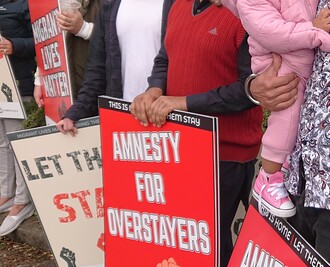
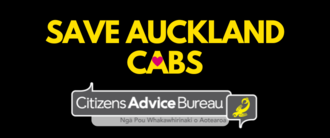.png)
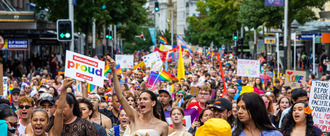
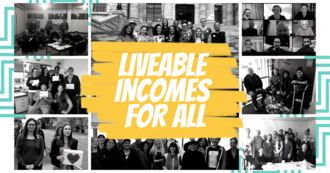.png)


.png)
